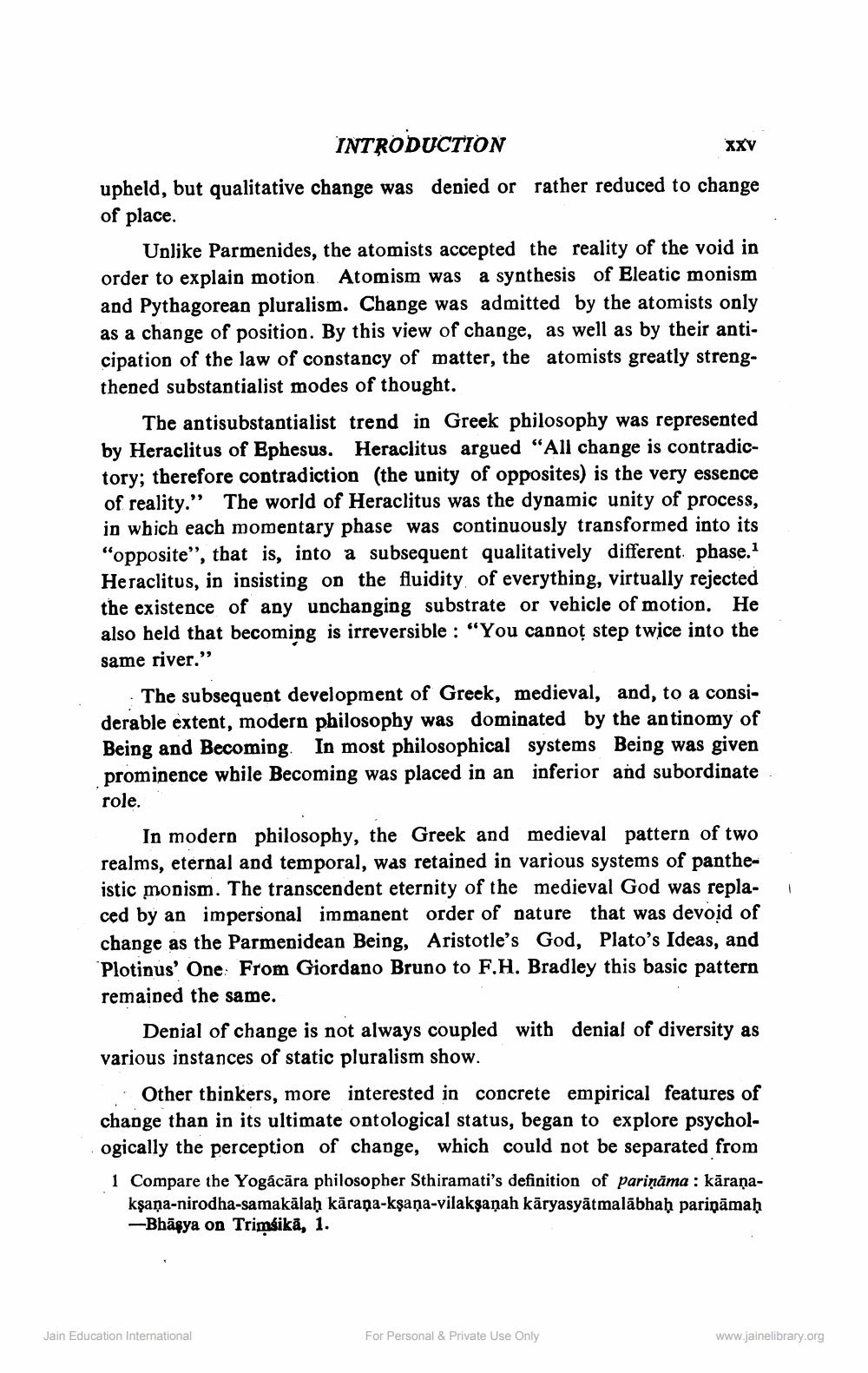________________
XXV
INTRODUCTION upheld, but qualitative change was denied or rather reduced to change of place.
Unlike Parmenides, the atomists accepted the reality of the void in order to explain motion Atomism was a synthesis of Eleatic monism and Pythagorean pluralism. Change was admitted by the atomists only as a change of position. By this view of change, as well as by their anticipation of the law of constancy of matter, the atomists greatly strengthened substantialist modes of thought.
The antisubstantialist trend in Greek philosophy was represented by Heraclitus of Ephesus. Heraclitus argued "All change is contradictory; therefore contradiction (the unity of opposites) is the very essence of reality.” The world of Heraclitus was the dynamic unity of process, in which each momentary phase was continuously transformed into its "opposite", that is, into a subsequent qualitatively different phase. 1 Heraclitus, in insisting on the fluidity of everything, virtually rejected the existence of any unchanging substrate or vehicle of motion. He also held that becoming is irreversible : "You cannot step twice into the same river."
The subsequent development of Greek, medieval, and, to a considerable extent, modern philosophy was dominated by the antinomy of Being and Becoming. In most philosophical systems Being was given prominence while Becoming was placed in an inferior and subordinate role.
In modern philosophy, the Greek and medieval pattern of two realms, eternal and temporal, was retained in various systems of pantheistic monism. The transcendent eternity of the medieval God was repla- ced by an impersonal immanent order of nature that was devoid of change as the Parmenidean Being, Aristotle's God, Plato's Ideas, and Plotinus' One From Giordano Bruno to F.H. Bradley this basic pattern remained the same.
Denial of change is not always coupled with denial of diversity as various instances of static pluralism show.
I
Other thinkers, more interested in concrete empirical features of change than in its ultimate ontological status, began to explore psychologically the perception of change, which could not be separated from 1 Compare the Yogácāra philosopher Sthiramati's definition of pariņāma : kāraņakỹana-nirodha-samakalah karana-ksana-vilaksanah kāryasyātmalabhah parilãmah -Bhāfya on Trimsikā, 1.
Jain Education International
For Personal & Private Use Only
www.jainelibrary.org




